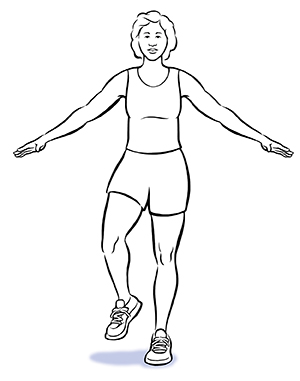Understanding Dizziness, Balance Problems, and Fainting
Balance is a group effort of the eyes, inner ear, joints, and muscles. They each send signals to the brain about body position and head movement. Then the brain uses this information to achieve balance. When the brain receives conflicting signals, or when there is a problem with blood flow, dizziness or fainting can happen.
 |
| The eyes, inner ear, joints, and muscles send signals to the brain to achieve balance. |
Vertigo
Vertigo is the feeling of spinning, tilting, falling or feeling off balance that may occur with nausea or vomiting. It may happen if the brain receives conflicting balance signals. Vertigo is often caused by a problem in the inner ear. Problems include changes in inner ear structures, infection, swelling, or excess fluid. Sometimes vertigo is due to a brain problem, such as migraine, stroke, or tumor.
Disequilibrium
Disequilibrium is the feeling of imbalance without a sense of spinning. It may happen if the signal path between the body and brain is disrupted. There are many causes of disequilibrium, including diabetes, anemia, head injury, and aging.
Fainting (Syncope)
Syncope is losing consciousness or fainting. The brain needs oxygen-rich blood to function. The heart pumps that blood to the brain. If there is a problem with the heart, blood flow (such as low blood pressure), or blood vessels, you may faint. Fainting is most often due to prolonged standing, straining to pass urine or stool, pregnancy, standing up suddenly, use of certain medicines, and strong emotions (such as pain or fear). Sometimes, the cause can't be found.